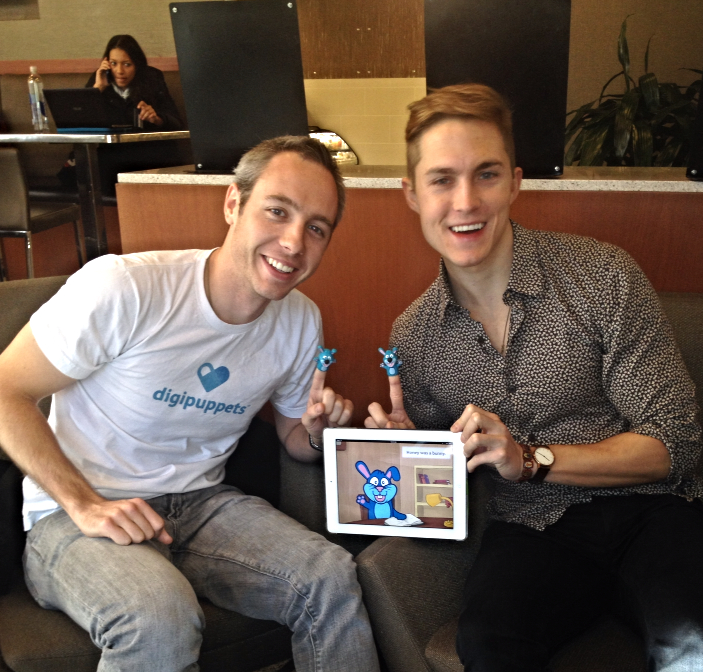Half of all American adults now own smartphones, but the real growth of tablets and mobile devices are among children and teens.
That means app developers are scrambling to produce age-appropriate content, which has mostly meant an explosion of edtech and classroom software startups. But DigiPuppets, a kid-friendly Stylus-like product from two Wharton students, is an effort to take a hardware approach to improve user experience.
Digipuppets are character-orientated finger puppets that allow young children to playfully use the touchscreen of an iPad or other tablets. Not only can the puppets allow the user to use any feature on the touchscreen, but the characters are also integrated in the company’s own games and books.
Cofounders Daniel Clay and Brendan Green wanted children to not only be more interactive with tablets in general but be able to learn while using them. The pair, who worked out of a Wharton incubator space this summer, are leveraging a growing digital puppetry conversation.
http://www.youtube.com/watch?v=30_KcpyJVes
“We implemented the books and games so that kids can use the puppets to have fun while learning,” said Green. “They can go through the book and follow the characters on their journey while answering questions [in subjects like] math along the way.”
The characters, which include Honey Bunny, Zip the Zebra and Marty the Moose, are all elements that will be connected through the books, games and puppets themselves.

Clay and Green established that they want to have a specific book for each character and eventually create an entire digital world for the characters, called Digipuppet Playground. Here, the children will use their puppets to interact with other puppet users around the world by chatting and playing games together.
In its final stage of prototyping, Digipuppets are beginning production next month and should be ready for sales by January or February.
In early testing, the pair think the hardware component is of real value to a crowded edtech gaming world. Clay recalled a recent example of a young girl who strongly connected to one of their ebooks.
“We found out that later that night she asked her father for carrots during dinner and promised to share them because that’s what Honey Bunny does,” Clay said. “It really made me come full circle to see the real educational benefits we can provide kids, and that makes it all worth it.”







